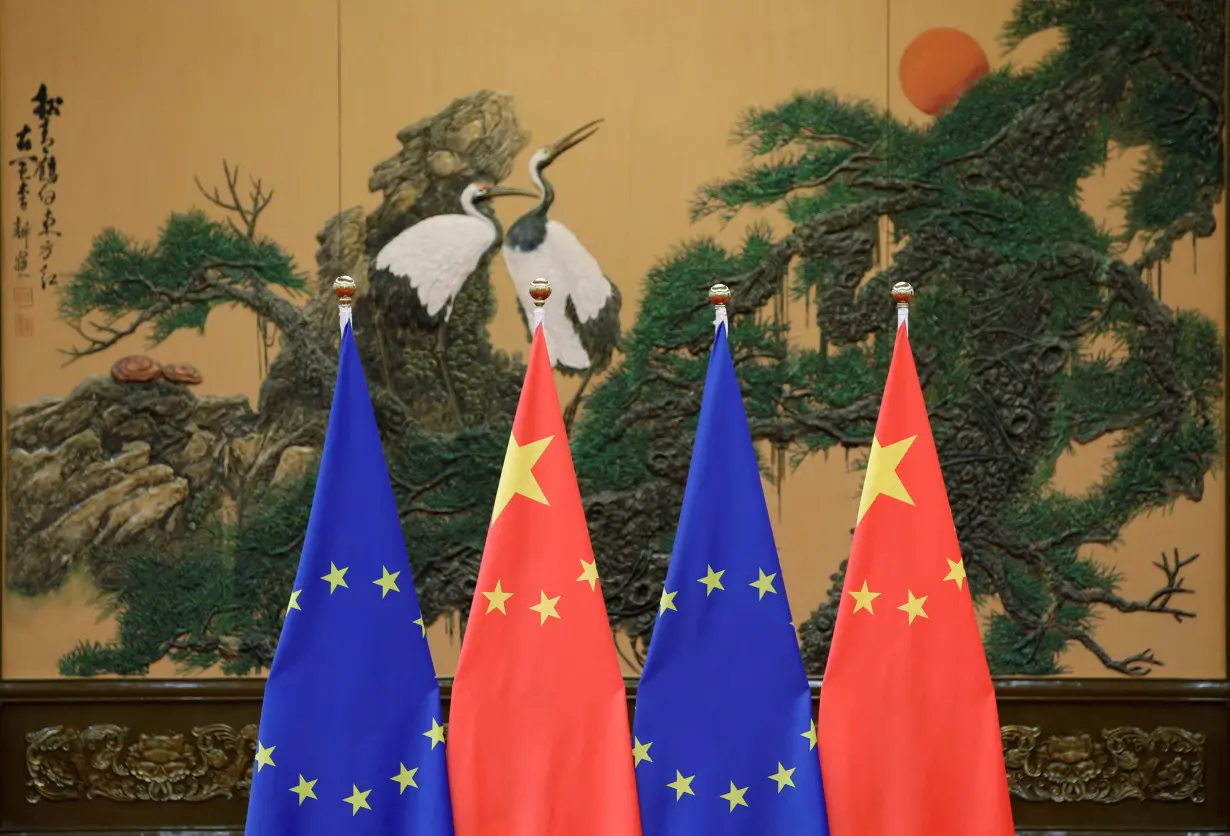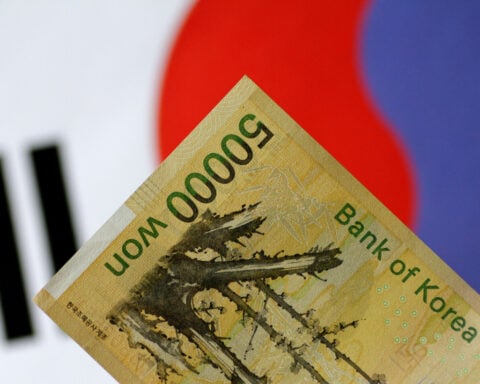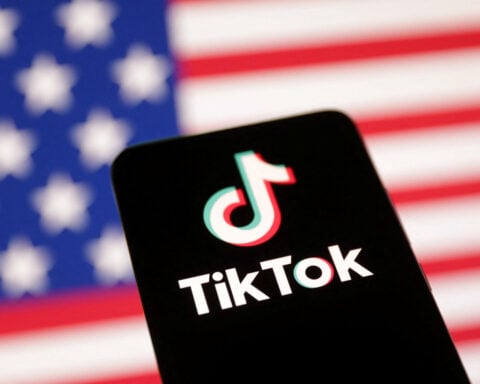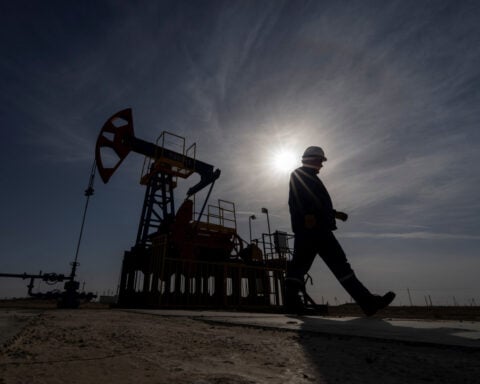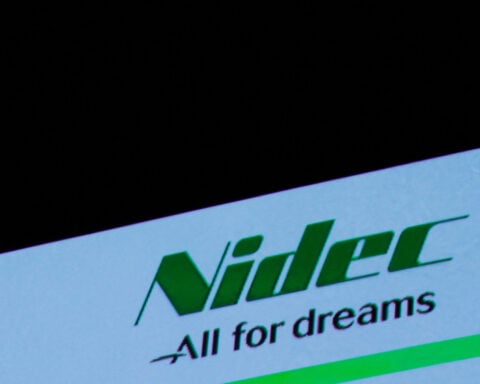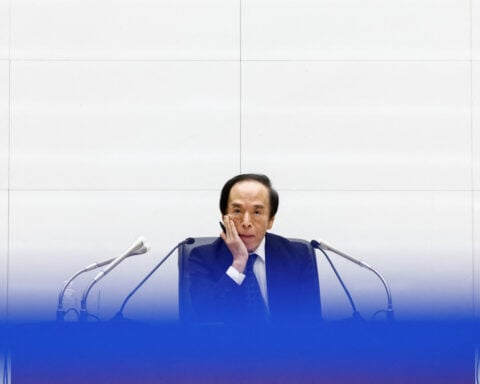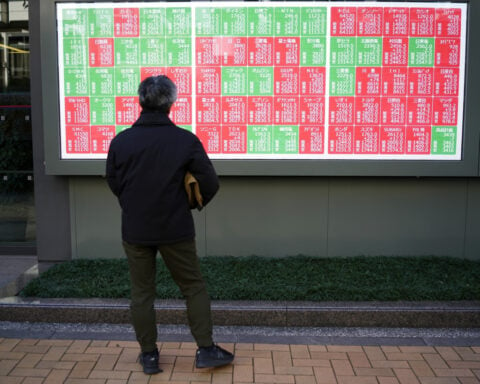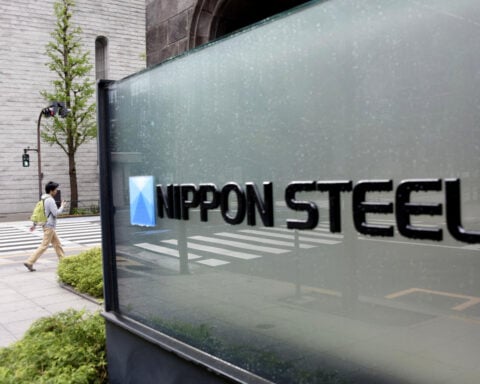LONDON (Reuters) - In the run up to announcing provisional tariffs on Chinese-made electric vehicles, the European Commission in April released a 712-page report on the many layers of subsidies it argues the Chinese government provides to domestic firms.
The report is designed for anti-dumping cases, but trade experts see it as a supporting document for its anti-subsidy investigation into EVs and as a signal to both China and reluctant European Union member states that it means business.
It also leaves the door open to future cases.
Here are some of the key findings from the report:
Support for state-owned enterprises
The Chinese government funnels both indirect and direct support to state-owned enterprises, or ones it effectively controls even with minority ownership. That includes low-cost financing via state-owned banks for state-owned firms regardless of profitability. Provincial and local governments also provide financial assistance.
For instance, in 2020 Anhui province bailed out Nio when the EV maker was experiencing a "financial reverse." Nio moved its headquarters to the province and the local branches of six state-owned banks agreed to extend 10.4 billion yuan ($1.6 billion) in credit lines to the loss-making company.
Communist Party control of state-owned firms
The Communist Party exercises a great level of control at state-owned firms - including those where it holds a minority stake - and is intertwined with management of those firms.
At SAIC, which via its ownership of the former British car brand MG accounted for around two-thirds of the Chinese-made cars sold in Europe last year, company chairman Chen Hong is also head of the automaker's Communist Party committee.
The State owns four big traditional automakers, dubbed the "Big Four": SAIC, Dongfeng, FAW Group and Changan. It also owns some important EV makers, including Nio, Brilliance, Chery, GAC and JAC Motors.
EV support
Since 2005, the Chinese government has focused support for its EV makers, through subsequent five-year plans, including EV production targets, the "Made in China 2025" initiative and various subsidies at the national and local level. Direct subsidies for EVs began in 2010 and are still in effect.
The purchase tax exemption on EVs, which the Chinese government extended last year through to 2027, amount to $11.9 billion in 2022 alone.
"The further prolongation of the purchase tax exemption shows that the Government keeps intervening into the NEV market with a view to ensuring its economic viability," the report says.
The government's 2017 Automobile Plan sets ambitious global targets, including having several Chinese automakers among the world's top ten EV makers by 2020, and having several Chinese companies among the world's top automakers by 2025.
Rating agencies
Most of China's credit rating agencies are state-owned, which means that most ratings are "heavily skewed towards the highest end of the rating scale".
By the end of 2020, 96% of Chinese bonds were rated 'AA' or better, with 38% of credit bonds carrying an 'AAA' rating. By contrast less than 10% of firms receive such high ratings in the U.S. market. "Consequently, the information on credit risk ... derived from a rating by Chinese credit rating is not directly comparable to the ratings in other markets."
Better credit ratings help companies obtain financing.
(Reporting by Nick Carey; Editing by Josephine Mason and David Holmes)

 Japan's Makino Milling requests changes to unsolicited bid from Nidec
Japan's Makino Milling requests changes to unsolicited bid from Nidec
 South Korea's Yoon likely to be held in a solitary cell
South Korea's Yoon likely to be held in a solitary cell
 Michigan Gov. Gretchen Whitmer, a potential 2028 candidate, wants to find common ground with Trump
Michigan Gov. Gretchen Whitmer, a potential 2028 candidate, wants to find common ground with Trump
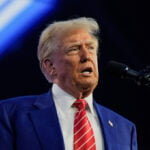 Trump's Greenland bid stirs debate in China about what to do with Taiwan
Trump's Greenland bid stirs debate in China about what to do with Taiwan
 Inflation duo takes centre stage
Inflation duo takes centre stage
 Manatees congregate in warm waters near power plants as US winter storms graze Florida
Manatees congregate in warm waters near power plants as US winter storms graze Florida
 As Los Angeles burns, Hollywood's Oscar season turns into a pledge drive
As Los Angeles burns, Hollywood's Oscar season turns into a pledge drive
 As fires ravage Los Angeles, Tiger Woods isn't sure what will happen with Riviera tournament
As fires ravage Los Angeles, Tiger Woods isn't sure what will happen with Riviera tournament
 Antetokounmpo gets 50th career triple-double as Bucks win 130-115 to end Kings' 7-game win streak
Antetokounmpo gets 50th career triple-double as Bucks win 130-115 to end Kings' 7-game win streak
